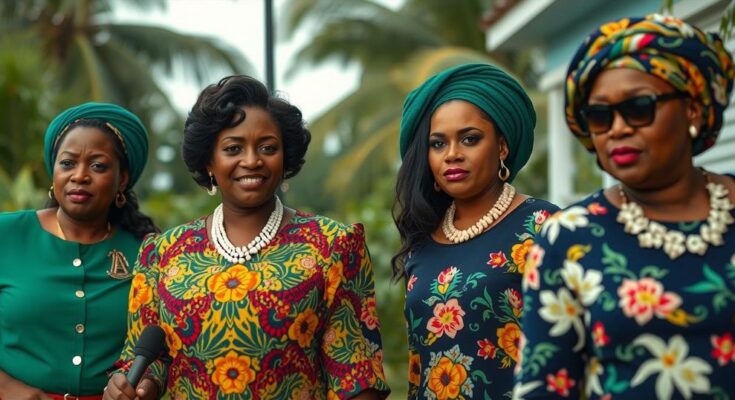A major sex scandal in Equatorial Guinea has gone viral, involving Baltasar Ebang Engonga, a former high-ranking official, in explicit videos with the wives of prominent officials. The situation drew widespread attention, prompting governmental response and international discourse, likened to the allegations surrounding Sean Diddy. Engonga was swiftly removed from his position amid public outrage and concerns over consent and privacy.
A significant sex scandal has erupted in Equatorial Guinea involving high-ranking official Baltasar Ebang Engonga, who was recently dismissed from his role as director of the National Financial Investigation Agency. Viral videos depicting Engonga engaged in sexual acts, purportedly with the wives of prominent officials, have attracted widespread attention on social media platforms. Despite efforts by authorities to curb the dissemination of these explicit materials, their rapid spread has sparked extensive global discourse, drawing reactions from various notable public figures including Nigerian singer Davido and French rapper Kaaris. This scandal not only highlights challenges surrounding consent and privacy but has also led to governmental responses, with President Teodoro Obiang Nguema Mbasogo issuing a decree for Engonga’s removal from his position. One of the women featured in the videos expressed her outrage during a television interview, claiming she was unaware that the videos would be retained and publicly circulated without her permission. Authorities have responded with urgency, seeking to limit the online circulation of these clips. The international interest surrounding this situation has caused a cultural ripple effect, manifesting in memes and songs while also being referenced in various legislative discussions, including sessions in the Kenyan Parliament. Comparisons have been drawn to sexual misconduct allegations faced by Sean “Diddy” Combs, further emphasizing the global implications and societal reactions to such scandals. Equatorial Guinea’s government continues to navigate these troubling waters, with the gravity of the issue prompting a national conversation about ethics, privacy, and respect for individuals in positions of power.
This incident emerged against the backdrop of rising societal scrutiny toward matters relating to privacy, consent, and the abuse of power in sexual encounters, particularly involving public figures. Engonga, related to President Teodoro Obiang of Equatorial Guinea, had been a significant political figure until the scandal undermined his position. Public discourse has expanded beyond the local context, engaging international audiences and prompting discussions about personal autonomy and the ramifications of such disclosures. Comparisons to the Sean Diddy scandal highlight a broader dialogue regarding the accountability of public figures in similar contexts.
In conclusion, the unfolding scandal in Equatorial Guinea serves as a potent reminder of the complexities of privacy and consent involving public officials. The rapid dissemination of the explicit content demonstrates how digital media can amplify personal crises, further complicating societal perceptions regarding power dynamics in relationships. As Engonga’s case draws international attention, it underscores the necessity for both accountability and a reconsideration of how individuals in authority are expected to conduct themselves. The consequences of such scandals resonate beyond their immediate contexts, influencing discussions around ethics, consent, and individual rights on a global scale.
Original Source: www.livemint.com




